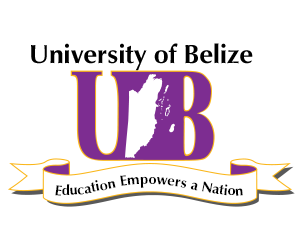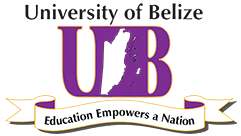- Version
- Download 387
- File Size 871.98 KB
- File Count 1
- Create Date August 12, 2019
- Last Updated August 12, 2019
UB Imprint Vol 57: Higher Education and Development for Belize by Dr. Richard A. Carvajal, President – Valdosta State University
To the family and friends, and especially to the graduates of the UB Class of 2019, what an honor it is to serve as your Commencement Speaker.
But before I start, I think it’s important that we answer some important questions. WHY was I deemed to be a good selection for this year’s graduation, and WHAT do I have to do with UB?
Well to understand that, you have to go back to the mid-1980s. Several American universities had begun trying to help Belize develop, but Belizean officials had trouble sorting through all those offers of help, and wanted an easier way to request from one source what was needed. An American educator responded to that call and assembled a group for what became the first meeting of the Consortium for Belize Educational Cooperation, or COBEC. His name was Tracy Harrington. Tracy spent the vast majority of his career at Valdosta State University – my university. Over the years, Tracy and Valdosta State University hosted many Belizeans, helping them to earn degrees there, but he also made sure that our faculty and staff at Valdosta State came here to help Belize grow its educational system. One student who studied at Valdosta was your own Minister of Education, and current Deputy Prime Minister, the Honorable Patrick Faber, who himself is a Valdosta State alumnus. People like Tracy and Minister Faber had a dream. They believed that investing in education could help individual Belizeans rise up out of poverty, and that an investment in education on a national level could help Belize become a clear leader of this region. Further, they believed that a partnership between universities such as Valdosta and Belize’s National University would be beneficial for all Belizeans. They were right!
And thanks in no small part to their initial dream, Belize has most definitely become stronger. For instance, in just the decade I have been coming, I have seen dramatic growth and development. Your primary and secondary educational system has improved significantly, as has access to quality healthcare. Tourism is thriving, and more Belizeans are creating their own businesses. And one aspect of a stronger Belize that Valdosta State is particularly proud of is the emergence of the University of Belize as a first-rate institution of higher learning capable of educating a new generation of Belizean leaders. In UB’s early days, American universities had to send faculty to provide the content and instruction for a fledgling institution. Now, American universities such as Valdosta enjoy mutual benefit from a partnership with UB, where faculty here are learning what it means to become leaders in their fields. And today’s large group of graduates – yes, you all sitting here in front of me - represent the better trained workforce that exists here in Belize because of your nation’s newfound ability to grow your own. Graduates – you are the outcome of all that has been done to turn Belize and its national university into the leaders that they are today!
And because you’ve done your part, and satisfied the requirements necessary to earn your degrees, you’re now ready to move on to whatever is next. Some of you will be teachers, others – leaders in business, government, health care, tourism, and other fields. But no matter what career you are pursuing, because you’ve made the investment in yourself that you have, there is now no limit to what you can be. You see, while I come from a country that boasts Hollywood stars and world-famous athletes, America, too, has poverty. I, myself, was once homeless, and I grew up absolutely understanding what it was like to struggle. I tell you that not because I think my story is special. But like me, you came to university because you wanted better for yourselves and your families. Many of you struggled to find the money to pay tuition and fees, and others of you left loved ones each week, or traveled great distances daily to get to your classes. You spent so many late nights studying, and you made countless personal sacrifices to not quit and keep going. And because you did that, your faculty, UB’s administration and staff, your family and friends, and I are all extremely proud of you. And you should be proud of yourself, too. This is your day, and we congratulate you on not quitting, and on getting to this milestone.
But as was said earlier, graduation is not a finish line. No, I instead think of it as your next starting line. You’ve earned the credentials you need to now pursue a better life, and we can’t wait to see you do that. But no matter where you go, there is a principle that I want you thinking about as you prepare to make that move. And that principle is best communicated via a story – a story I heard from former United States President, Jimmy Carter, who is from my home state of Georgia, and who the world recognizes as one of the most impactful humanitarians we’ve ever known. You see, I had the privilege of getting to know President Carter, and he shared a story with me that, he said, shaped all that he has become. And it’s a story that has had great meaning to me, and I’m hoping, it’s a story that will be significant for you, too.
Long before he became America’s 39th president, or before he won the prestigious Nobel Peace Prize, he was in the U.S. Navy. He had risen up the ranks quickly, and at still a young age, he was granted an opportunity to interview for command of his own ship. He entered the office of the most important man he had ever met, and he sat patiently waiting for that commanding officer to look up from what he was doing and begin the interview. Finally, he did, and the officer asked young Jimmy several questions, which Carter confidently felt he had answered well, before indicating that he had just one question left. ‘In all those roles you’ve had,’ the man asked, ‘did you always do your best?’ The question – seemingly so simple – hit Carter between the eyes. He knew what he should say, but he also knew that his own natural abilities had meant that something other than his best had sometimes been more than enough. Knowing that his face would give away anything other than the truth, Carter admitted, ‘No sir. I did not.’ The man heard his answer, turned his chair, lowered his head, and went back to his papers. The interview was over. Carter got up, and slowly, and quietly, walked out of the room. He didn’t get that command he had so desired, but instead, what he got was so much more valuable. It was a lesson that he told me has stuck with him all his life, and ultimately landed him in America’s highest office. He learned that he never again wanted to have to answer that question with anything other than a yes – yes, he had done his absolute best.
So what will you do? What next challenge will you overcome? What new life goal will you be able to accomplish? And perhaps most importantly, no matter what comes at you, or what opportunity presents itself, how will you make sure that you always do your absolute best?
Years ago, when the obstacles in my life were at their worst - a family member gave me a simple gift – an inexpensive wall hanging with the famous poem entitled “Don’t Quit” inscribed on it. If you visited my office today, you would see a copy of this poem displayed near my desk. I look at it every day, as I have for most of my adult life, and its iconic words, “It’s when things seem worst, that you must not quit” remind me that everyone faces challenges, but a leader is one who continues to push forward despite those challenges. All of you have overcome significant obstacles in your life to get to this point. As we have noted, the fact that you are here today is evidence enough that you did not quit.
I’m told a famous Belizean saying goes something like this – “You can’t rest every day. Sometimes, you have to work.” Well graduates, today is a much-earned day of rest, a day to remember and appreciate all you had to do to get to this point, and, yes, a day of celebration. But tomorrow, with your degrees in hand, and hopefully, a desire to always do your best in your hearts, it’s time to go to work. Yes, it’s time to make the most of the investment people like Tracy Harington, Minister Faber, and, most importantly, YOU, started long ago – to make your lives, and the lives of your loved ones, better tomorrow than they are today. Become leaders in your careers. Make your families even more proud of you than they are today. And help Belize take its next leap and become even more prosperous for your children, and for your children’s children. And if and when you do that, the Class of 2019 will forever be known as the class that changed not just UB, and not even just Belize, but because of all that you will do, you will be known as the class that changed the world.
An edited version of the Commencement Address delivered on June 15, 2019 at the Belize City Civic Center.





